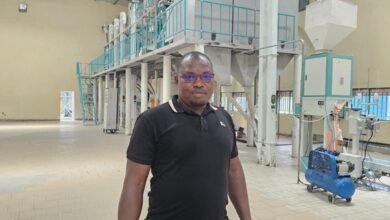Quipux Africa : the successful bet on digitalization serving citizens
A key player in the digital transformation of public services in Africa, Quipux Africa, led by Ibrahima Koné, is betting on technological innovation to modernize road transport administration. Backed by its public-private partnership model, the company aims to strengthen its presence in Ivory Coast and accelerate its expansion across the continent.
By Dounia Ben Mohamed, Abidjan
In May 2025, a major milestone was reached in the digital transformation of the Ivorian public administration with the inauguration of the very first digital agency of the Integrated Management Center (CGI) of the Ministry of Transport, operated by Quipux Africa. This innovation illustrates the new momentum driven by this 100% Ivorian tech company, serving African administrations.
Our mission is to provide states with efficient digital tools to optimize the management of administrative documents related to road transport, improve road safety, and mobilize non-tax resources
explains Ibrahima Koné, CEO of Quipux Africa
A subsidiary of the Quipux SAS group, based in South America, Quipux Africa specializes in developing technological solutions applied to road transport systems. It established itself in Ivory Coast in 2013 as part of a public-private partnership aimed at modernizing administrative services related to transport. Under the leadership of Ibrahima Koné, then a young visionary Ivorian entrepreneur, Quipux Africa experienced rapid growth. Starting from a capital of 500 million FCFA, Quipux Africa has strengthened its financial structure with a capital increase that now stands at 3.109 billion FCFA. Over a decade, it progressively took control until becoming a company with 100% Ivorian capital. This successful Africanization, conducted with rigor and boldness, makes Quipux Africa today a continental benchmark in the digital transformation of public services and a model of strategic economic reappropriation serving local development.
The company has become in a decade a model of continental success, already operating in Ivory Coast, Congo-Brazzaville, Guinea-Bissau, and in advanced discussions with several other countries.
A concrete response to modernization needs

Digitalization is no longer a choice but a necessity. For Koné, “digital technology brings administration closer to citizens, increases transparency, and fights corruption.” Thanks to its interoperable platform, Quipux Africa connects the various administrative actors around a virtual one-stop shop. The result: simplified procedures, processing times reduced to less than 24 hours, and more accessible service.
Digital technology brings administration closer to citizens, increases transparency, and fights corruption


This technology profoundly transforms the user experience. “No more queues, everyone can initiate their request online, access a self-service kiosk, and track the progress of their application independently,” the CEO proudly states. A reinvented vision of public service that aligns perfectly with Ivory Coast’s digital development strategy.
A model based on public-private partnership
Quipux Africa’s success rests on a structured financing model. Through public-private partnerships (PPP), the company mobilizes the investments necessary to implement robust infrastructure. “Our solutions help reduce accidents, improve service quality, while generating data useful for governance,” insists Koné.
The Integrated Management Centers (CGI) implemented by Quipux centralize, secure, and digitize all road transport document management processes. They also contribute to producing reliable statistics, fighting fraud, and sectoral planning. This is a considerable advance for administrations long hampered by bureaucratic burdens.
Ambitious perspectives

After ten years of activity in Ivory Coast, Quipux Africa is here for the long term. The concession agreement provides for the continuation of its mission for the next fifteen years. The next step: full digitization of administrative documents accessible via an electronic wallet.
Mobility and road safety challenges are shared across the continent. Our goal is to replicate our model in other African countries with similar realities
But the company’s ambitions go beyond Ivorian borders. “Mobility and road safety challenges are shared across the continent. Our goal is to replicate our model in other African countries with similar realities,” Koné emphasizes. For him, Quipux’s experience proves that it is possible, in Africa, to build technological champions based on local resources.
By helping to structure the transport sector — which represents more than 17% of Ivory Coast’s GDP — Quipux Africa intends to remain a strategic player in state modernization. “You have to believe in African potential,” asserts its CEO, convinced that technology can be a lever for equity, efficiency, and sustainable transformation.






